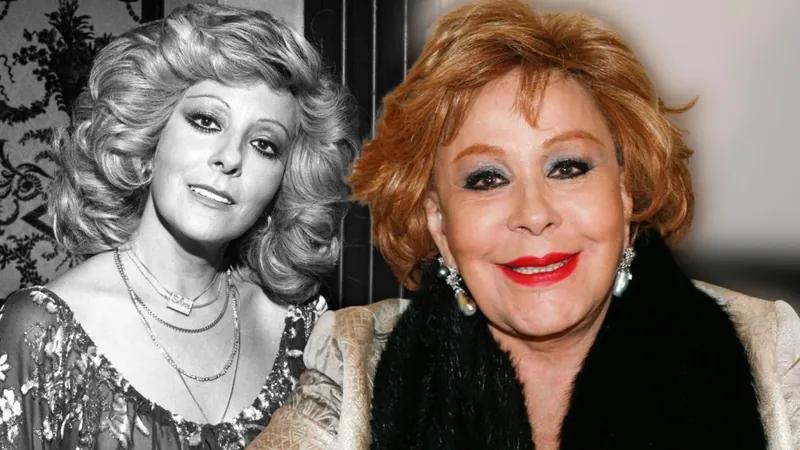
Silvia Pinal Passes Away at 93: A Legend of Mexican Cinema Gone Forever!
2024-11-29
Author: Wai
Silvia Pinal: A Life in Film and Television
Renowned actress Silvia Pinal, an iconic figure from the Golden Age of Mexican cinema, has sadly passed away at the age of 93. Her death was confirmed by Mexico's Secretary of Culture following her hospitalization for a urinary tract infection earlier this month.
In an official statement shared on X, the Ministry of Culture expressed their condolences, stating: "The Ministry of Culture of the Government of Mexico regrets the passing of leading actress Silvia Pinal. With a career spanning more than six decades, she participated in over 60 films and plays. Her legacy lives on as a fundamental pillar of cinema, theater, and television in Mexico. May she rest in peace."
Early Career and Rise to Fame
Pinal was born on September 12, 1931, in Guaymas, Sonora, Mexico. She kickstarted her acting journey at the National Institute of Fine Arts and Literature, making her debut in the 1949 comedy "Dos pesos la dejada."
She rapidly rose to fame, gracing the silver screen alongside legendary actor Pedro Infante in "La Mujer que yo perdí" that same year. Pinal went on to share the spotlight with Mexican film icons such as Cantinflas in "The Doorman" (1950), Tin Tan in "El Rey del Barrio," and the talented Sara García.
Accolades in the Film Industry
Her impeccable performance in "Un rincón cerca del cielo" earned her the prestigious Ariel Award—Mexico's equivalent of the Academy Award—further solidifying her place in cinematic history. Not one to be limited to her home country, Pinal took her talents internationally, featuring in the Spanish film "Las Locuras de Bárbara" (1958) and the musical "Charleston." She also had memorable roles in Italian cinema, acting alongside Vittorio de Sica and Elke Sommer in "Uomini e Nobiluomini" (1959).
Pinal's Hollywood Venture and International Recognition
Pinal’s sole Hollywood venture came in 1969 when she starred with Burt Reynolds in the film "Shark!", directed by Samuel Fuller. Her impressive repertoire also included collaborations with Anthony Quinn and Charles Bronson in the French film "Guns for San Sebastian" (1968).



 Brasil (PT)
Brasil (PT)
 Canada (EN)
Canada (EN)
 Chile (ES)
Chile (ES)
 España (ES)
España (ES)
 France (FR)
France (FR)
 Hong Kong (EN)
Hong Kong (EN)
 Italia (IT)
Italia (IT)
 日本 (JA)
日本 (JA)
 Magyarország (HU)
Magyarország (HU)
 Norge (NO)
Norge (NO)
 Polska (PL)
Polska (PL)
 Schweiz (DE)
Schweiz (DE)
 Singapore (EN)
Singapore (EN)
 Sverige (SV)
Sverige (SV)
 Suomi (FI)
Suomi (FI)
 Türkiye (TR)
Türkiye (TR)